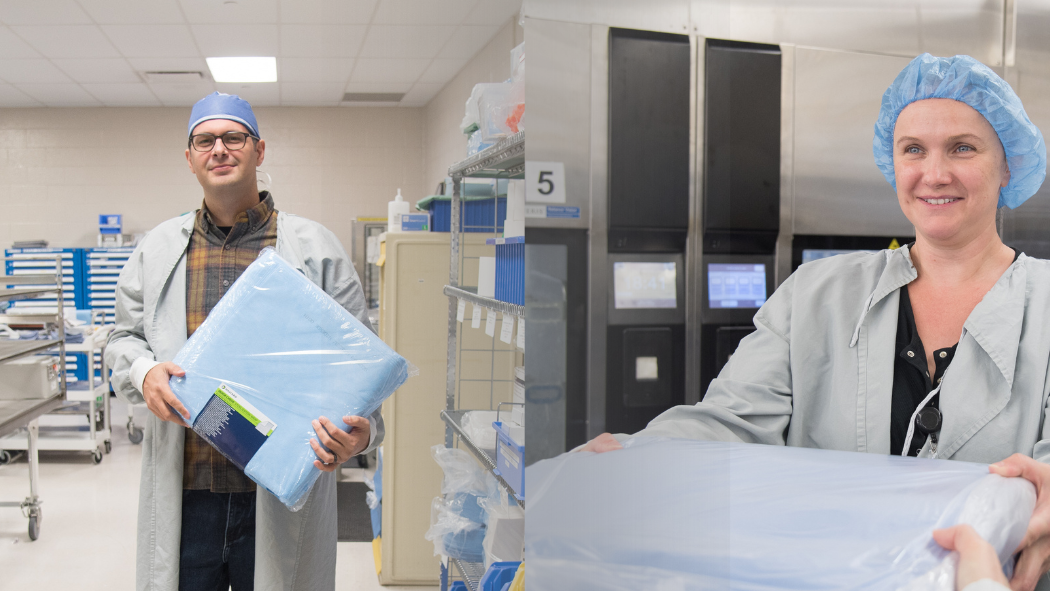
October 15, 2024
An area of the hospital off-limits to many is the Medical Device Reprocessing (MDR) Department. Here medical devices used in procedures and surgeries are decontaminated, sterilized and packaged for front-line team members and clinicians to use in their care of patients. The MDR team is critical to patient safety and care.
This team of 149 accredited professionals works diligently on a daily basis to ensure the highest level of patient safety and minimizes impact to patients when issues arise.
Spread across the hospital, they have sites at University Hospital, Victoria Hospital, and the Nazem Kadri Surgical Centre. These sites provide support to planned surgeries and procedures, and other patient care instruments such as incubators in the Neonatal Intensive Care Unit. The two locations at University and Victoria Hospital run 24 hours a day, seven days a week, 365 days a year providing critical support to emergency surgeries and procedures in addition to scheduled ones.
In late August, the Victoria Hospital site was faced with 12 hours of loss of water while a water main was repaired. To prevent impact to the surgeries and procedures of patients, the MDR team brainstormed, put together a plan and successfully implemented it with no impact to patients.
The teams at both sites worked together in the MDR Department at University Hospital to ensure all the instruments required at Victoria Hospital were cleaned, sterilized, packaged and transported back to Victoria Hospital in time for surgeries.
“We had really great communication and teamwork,” says Stephanie Cooper, an experienced MDR Technician from Victoria Hospital who went to University Hospital that evening to work. “It truly was a team effort.”
The clerks at both sites communicated back and forth throughout the day leading up to the water shut-off to ensure the University Hospital facility had all the support, space and materials needed to have the Victoria Hospital team members working alongside their University Hospital counterparts for what would be over 12 hours.
Owen Flood and Jasmina Mesanovic, clerks at the Victoria Hospital and University Hospital sites communicated constantly in the lead up to the shut-off ensuring the teams overnight would have everything they needed. Flood went through the department and gathered extra items, packing them up and sending them to University Hospital so staff had the equipment they needed. “We didn’t want to use up all of their stock,” says Flood. For Mesanovic, it was also necessary to make sure the teams had their separate areas for processing to ensure the instruments didn’t get mixed up as the instruments are specialized based on surgeries and procedures done at each site.
For Tim Hammond, an MDR Technician whose been with LHSC for over 23 years, the teamwork displayed in August was just one example of many when the teams have had to work alongside each other. “We all pulled together as a team on both sides and were able to accomplish the work with no risk to patient safety and no surgeries canceled,” says Hammond. “It is a true testament to the whole department.”
LHSC is celebrating Medical Device Reprocessing Week October 13 to 19.
